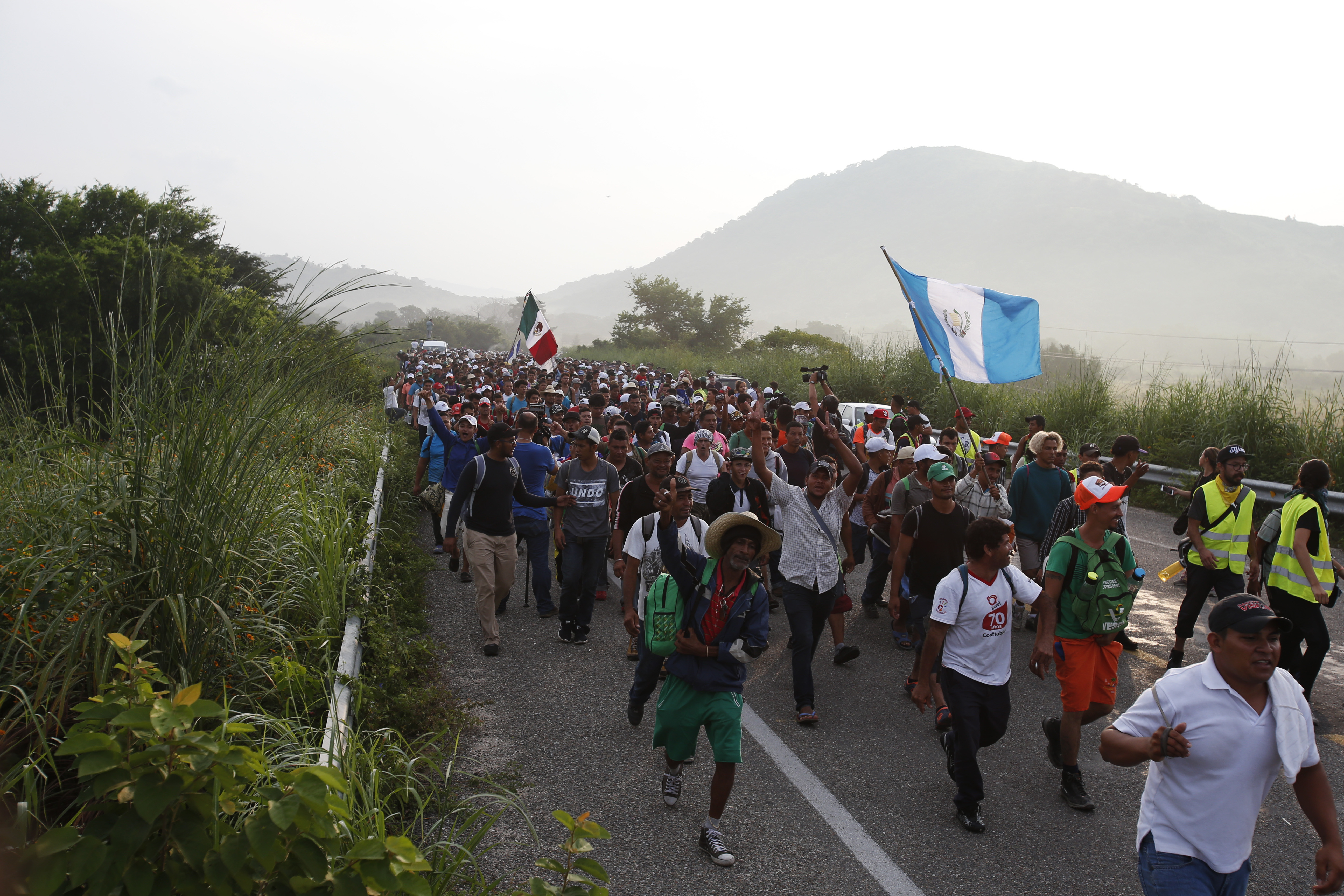Tapanatepec, Mexico: The Mexican government seems torn between stopping several thousand Central American migrants from travelling toward the U.S. border in a caravan or burnishing its international human rights image.
On Saturday, more than a hundred federal police dressed in riot gear blocked a rural highway in southern Mexico shortly before dawn to encourage the migrants to apply for refugee status in Mexico rather than continuing the long, arduous journey north. US President Donald Trump has urged Mexico to prevent the caravan from reaching the border.
Police let the caravan proceed after representatives from Mexico's National Human Rights Commission convinced them that a rural stretch of highway without shade, toilets or water was no place for migrants to entertain an offer of asylum. Many members of the caravan have been travelling for more than two weeks, since a group first formed in San Pedro Sula, Honduras.
Not long after the caravan resumed the trek north Saturday, government officials were seen for the first time directly helping the migrants by giving rides in trucks and providing water along the scorching highway.
Martin Rojas, an agent from Mexico's migrant protection agency Grupo Beta, said he and his fellow agents planned to use agency pick-up trucks to help stragglers catch up with the caravan.
"There are people fainting, there are wounded," said Rojas, who spoke to The Associated Press after dropping off a group of women and children in Tapanatepec, where the caravan planned to spend the night. Rojas transported the group to their destination after spotting them on a highway trudging through temperatures approaching 104 degrees Fahrenheit (40 degrees Celsius).
Most of the migrants in the caravan appeared determined to reach the US, despite an offer of refuge in Mexico.
Mexican President Enrique Pena Nieto launched a programme on Friday dubbed "You are home," which promises shelter, medical attention, schooling and jobs to Central Americans who agree to stay in the southern Mexico states of Chiapas or Oaxaca, far from the US border.
After another brutally hot day on the road with her husband and 8-year-old son, Alejandra Rodriguez said the possibility of health care and a work permit in Mexico sounded enticing. But as she laid out a tarp and blanket to sleep in a covered parking area in Tapanatepec, the 26-year-old from Tegucigalpa, Honduras said she'd prefer to start a new life further north. She had heard that job opportunities were scarce in southern Mexico.
"Our destiny is to get to the border," said Orellana, who left three children behind in San Pedro Sula. She was also suspicious of the Mexican proposal, fearing that she would be deported if she applies for asylum in Mexico.
This year's caravans have earned the ire of Trump. The Pentagon approved a request for additional troops at the southern border, likely to total several hundred, to help the US Border Patrol.
Stoking fears about the caravan and illegal immigration to rally his Republican base, Trump insinuated that gang members and "Middle Easterners" are mixed in with the group, though he later acknowledged there was no proof of that.
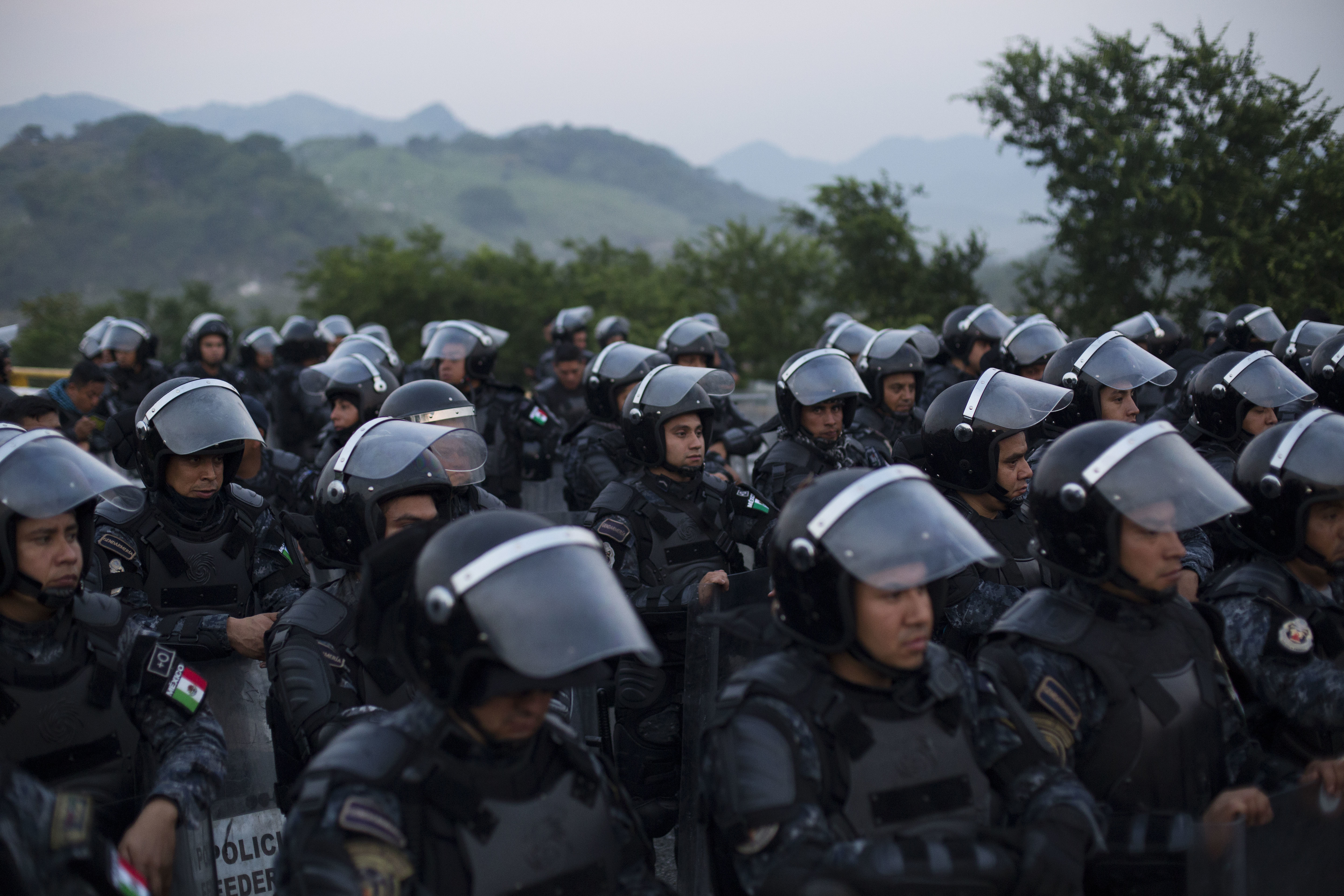
Mexican federal police in riot gear block the highway to keep a thousands-strong caravan of Central American migrants from advancing on their way to the US border outside Arriaga on October 27. Hundreds of Mexican federal officers carrying plastic shields briefly blocked the caravan of Central American migrants from continuing toward the United States, after several thousand of the migrants turned down the chance to apply for refugee status and obtain a Mexican offer of benefits. AP
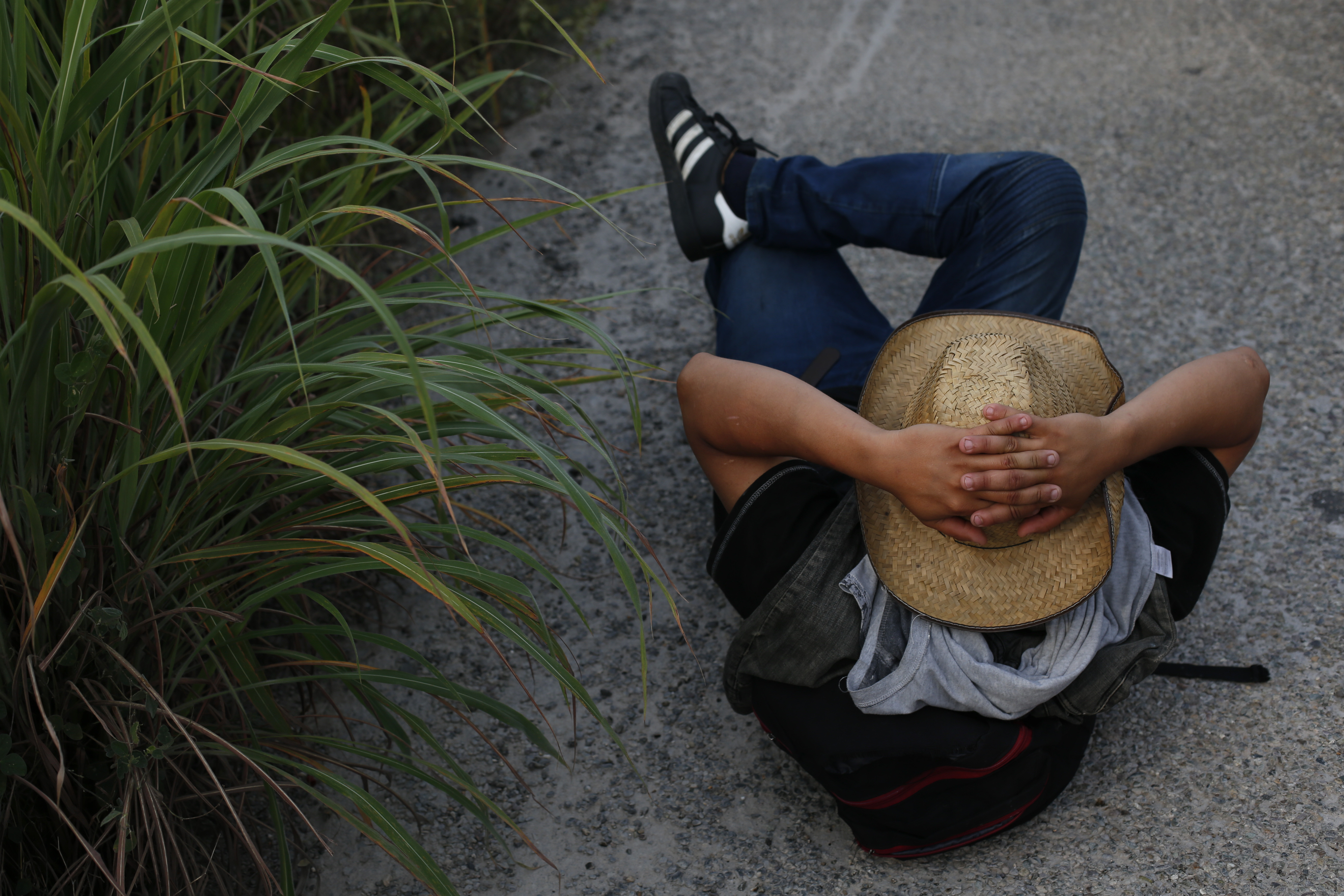
A man rests on the side of the highway as others walk past, after Mexican police briefly blockaded the road to keep the migrants from advancing, outside the town of Arriaga in Mexico on October 27. Hundreds of Mexican federal officers carrying plastic shields briefly blocked the caravan of Central American migrants from continuing toward the United States, after several thousand of the migrants turned down the chance to apply for refugee status and obtain a Mexican offer of benefits. AP
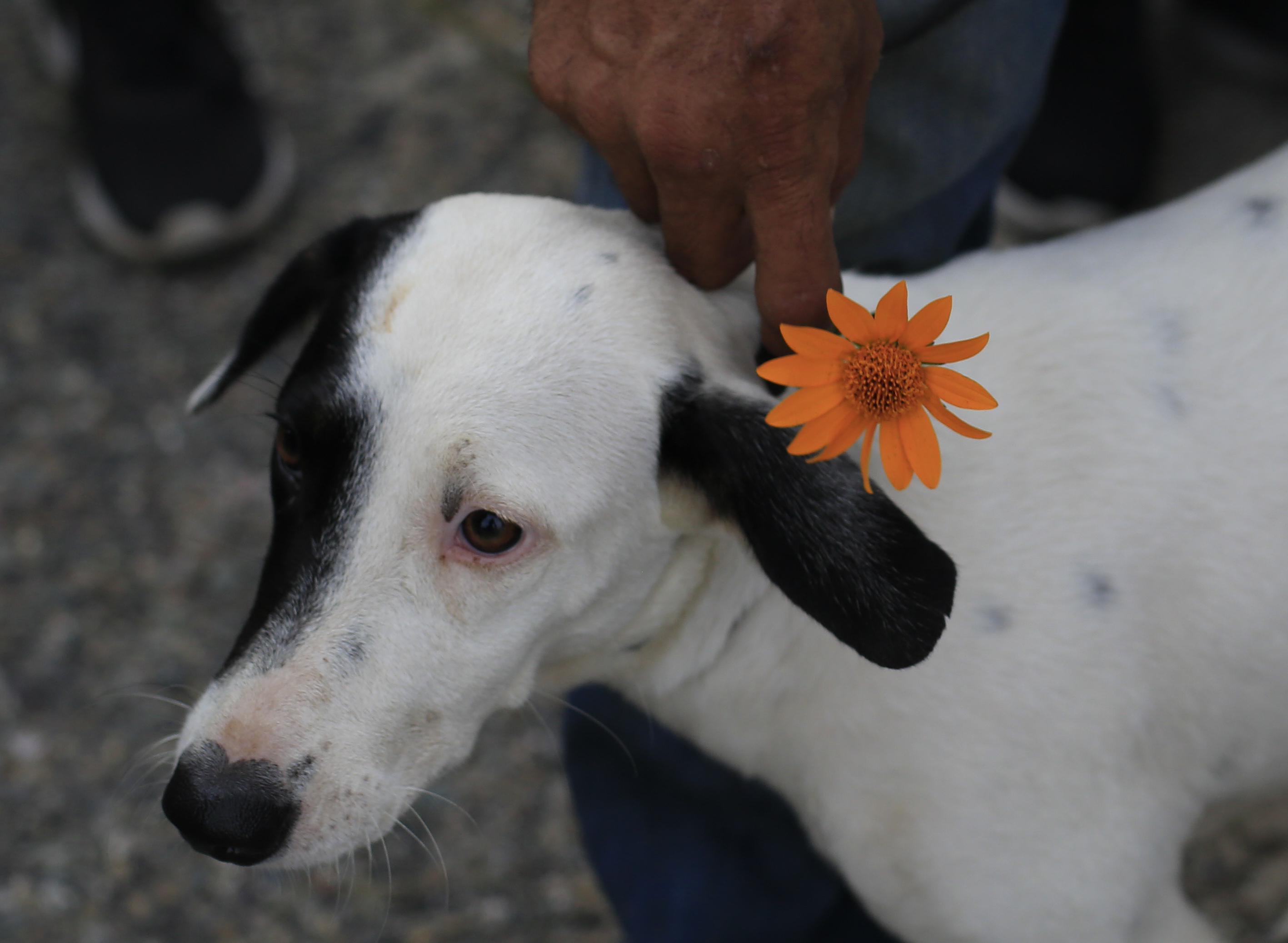
A migrant from Bolivia tries to put a flower on his dog "Nena," who he has been traveling with for almost two months since meeting her in Nicaragua, as a caravan of thousands of Central Americans waits on the highway after Mexican police blocked the road, outside the town of Arriaga in Mexico on October 27. AP
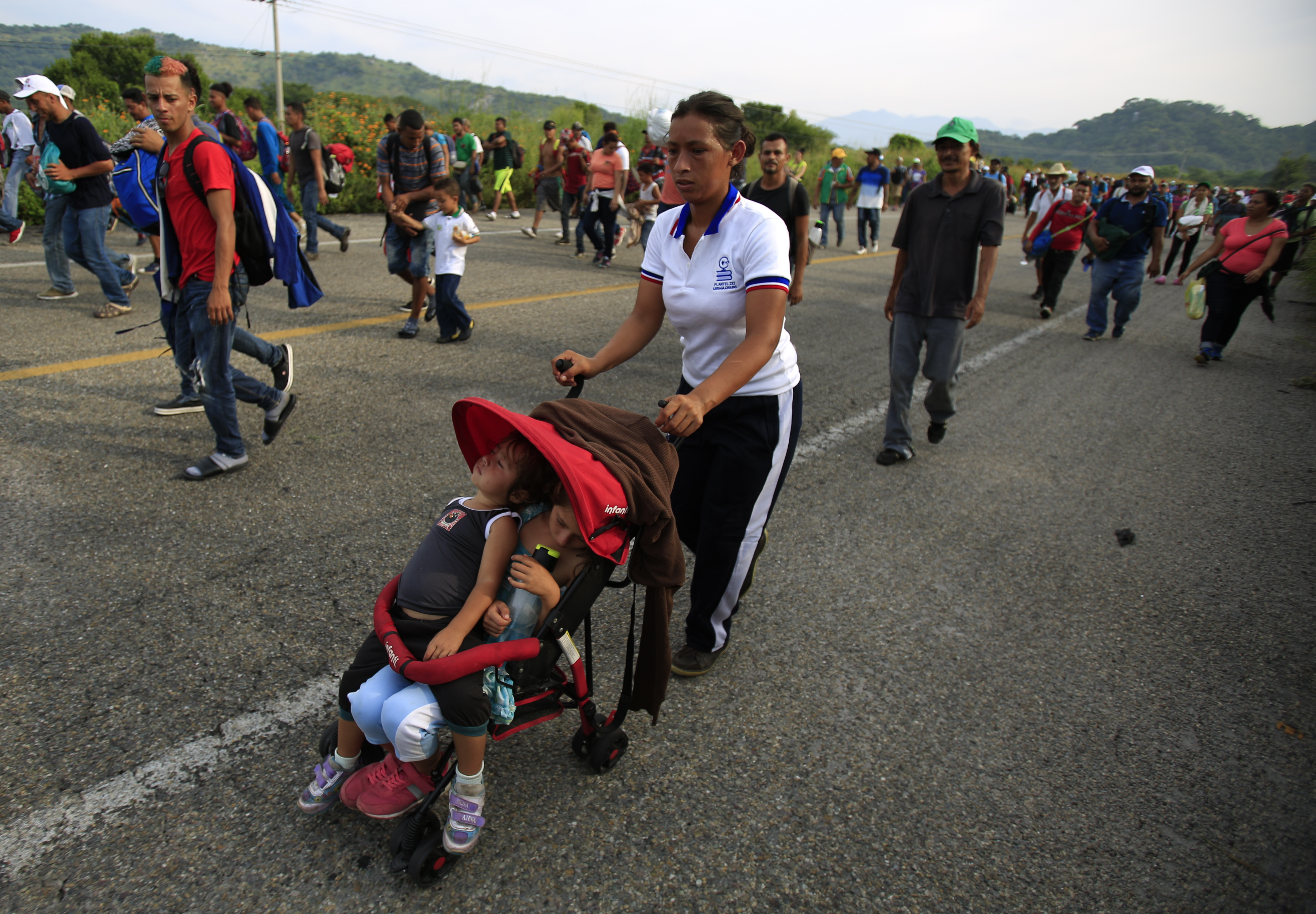
A woman pushes two children in a single stroller as migrants advance after police briefly blockaded the road outside the town of Arriaga in Mexico on October 27. AP

